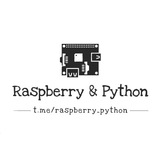https://www.raspberrypi.org/forums/viewtopic.php?t=108657
Diagnosing On Raspberry pi boards
@raspberry_python
Diagnosing On Raspberry pi boards
@raspberry_python
Rsync - Best Tool To Sync Files Between Devices (Mainly Servers)
🔺 https://kutt.it/3WAa3h
🔰 @raspberry_python
🔺 https://kutt.it/3WAa3h
🔰 @raspberry_python
سایت های آموزش آردینو
http://instructables.com/
http://hackster.io/
https://www.arduino.cc/
از طرف
@milad_ghasemi_1
و
icc-aria.ir
digispark.ir
از طرف
@aliasqr_98
http://instructables.com/
http://hackster.io/
https://www.arduino.cc/
از طرف
@milad_ghasemi_1
و
icc-aria.ir
digispark.ir
از طرف
@aliasqr_98
Instructables
Yours for the making
Instructables is a community for people who like to make things. Come explore, share, and make your next project with us!
Forwarded from Deleted Account
Arduino cookbook.pdf
5.9 MB
Forwarded from Deleted Account
Arduino Essentials.pdf
4.6 MB
Forwarded from Deleted Account
Arduino Workshop.pdf
6.8 MB
Forwarded from Deleted Account
C program for Arduino.pdf
9.5 MB
Forwarded from Deleted Account
Arduino_for_Dummies_John_Nussey.pdf
30.6 MB
Networkx_tutorial_full.ipynb
192.7 KB
Networkx tutorial
@raspberry_python
@raspberry_python
Basic OFDM Example in Python
https://dspillustrations.com/pages/posts/misc/python-ofdm-example.html
🔰 @raspberry_python
https://dspillustrations.com/pages/posts/misc/python-ofdm-example.html
🔰 @raspberry_python
Dspillustrations
Python OFDM Example - DSPIllustrations.com
This page describes a basic OFDM system in Python, including channel estimation, modulation and demodulation and CP insertion.
#آموزش کار با لیست
lst = [0, 1, 2, 3, 4, 5, 6, 7, 8]
print(lst[2])
outpu : 2
print(lst[1:3])
outpu : [1, 2]
print(lst[:3])
outpu : [0, 1, 2]
print(lst[-3:])
outpu : [6, 7, 8]
print(lst[:-3])
outpu : [0, 1, 2, 3, 4, 5]
print(lst[:])
outpu : [0, 1, 2, 3, 4, 5, 6, 7, 8]
print(lst[1:-1])
outpu : [1, 2, 3, 4, 5, 6, 7]
print(lst[::3])
outpu : [0, 3, 6]
print(lst[1:5:2])
outpu : [1, 3]
print(max(lst))
outpu : 8
print(min(lst))
outpu : 0
lst.append(9)
print(lst)
outpu : [0, 1, 2, 3, 4, 5, 6, 7, 8, 9]
tmp = lst.pop()
print(tmp)
outpu : 9
lst.remove(8)
print(lst)
output : [0, 1, 2, 3, 4, 5, 6, 7]
print(lst)
outpu : [9, 8, 7, 6, 5, 4, 3, 2, 1, 0]
print(lst.index(5))
output : 6
lst1 = [1, 2, 3]
lst2 = [4, 5, 6]
lst1.extend(lst2)
print(lst1)
output : [1, 2, 3, 4, 5, 6]
lst = [1, 2, 2, 2, 3, 4]
print(lst.count(2))
output : 3
lst = [1, [2, 3, 4, 5], 6, 7]
print(lst[1])
outpu : [2, 3, 4, 5]
print(lst[1][3])
outpu : 5
با تشکر از
@milad_ghasemi_1
🔰 @raspberry_python
lst = [0, 1, 2, 3, 4, 5, 6, 7, 8]
print(lst[2])
outpu : 2
print(lst[1:3])
outpu : [1, 2]
print(lst[:3])
outpu : [0, 1, 2]
print(lst[-3:])
outpu : [6, 7, 8]
print(lst[:-3])
outpu : [0, 1, 2, 3, 4, 5]
print(lst[:])
outpu : [0, 1, 2, 3, 4, 5, 6, 7, 8]
print(lst[1:-1])
outpu : [1, 2, 3, 4, 5, 6, 7]
print(lst[::3])
outpu : [0, 3, 6]
print(lst[1:5:2])
outpu : [1, 3]
print(max(lst))
outpu : 8
print(min(lst))
outpu : 0
lst.append(9)
print(lst)
outpu : [0, 1, 2, 3, 4, 5, 6, 7, 8, 9]
tmp = lst.pop()
print(tmp)
outpu : 9
lst.remove(8)
print(lst)
output : [0, 1, 2, 3, 4, 5, 6, 7]
print(lst)
outpu : [9, 8, 7, 6, 5, 4, 3, 2, 1, 0]
print(lst.index(5))
output : 6
lst1 = [1, 2, 3]
lst2 = [4, 5, 6]
lst1.extend(lst2)
print(lst1)
output : [1, 2, 3, 4, 5, 6]
lst = [1, 2, 2, 2, 3, 4]
print(lst.count(2))
output : 3
lst = [1, [2, 3, 4, 5], 6, 7]
print(lst[1])
outpu : [2, 3, 4, 5]
print(lst[1][3])
outpu : 5
با تشکر از
@milad_ghasemi_1
🔰 @raspberry_python
#آموزش کار با دیکشنری
dic = {'name' : 'milad', 'family' : 'ghasemi', 'age' : 34}
print(dic)
output : {'name' : 'milad', 'family' : 'ghasemi', 'age' : 34}
print(dic['name'])
output : 'milad'
dic['age'] = 25
print(dic)
output : {'name' : 'milad', 'family' : 'ghasemi', 'age' : 25}
print("my name is ", dic['name'])
output : my name is milad
print("lenght of dictionary is : %d " % len(dic))
output : 3
dic1 = dic.copy()
output : {'name' : 'milad', 'family' : 'ghasemi', 'age' : 34}
print(dic.get('name'))
output : 'milad'
print(dic.get('sex', "Op's can't find it!"))
output : "Op's can't find it this key in dictionary"
print(dic.keys())
output : name, family, age
print(dic1.values())
output : milad, ghasemi, 34
seq = ('name', 'age', 'state')
dic = dic.fromkeys(seq)
print(dic)
output : {'name' : None, 'age' : None, 'state' : None}
dic = dic.fromkeys(seq, 10)
print(dic)
output : {'name' : 10, 'age' : 10, 'state' : 10}
dic1 = {'language' : 'c++'}
dic.update(dict1)
print(dic)
output : {'name' : 'milad', 'family' : 'ghasemi', 'age' : 34, 'language' : 'c++'}
dic = {'name' : 'milad', 'favorite_language' : ['c++', 'python', 'perl']}
print(dic['favorite_language'])
output : c++, python, perl
print(dic['favorite_language'][0])
output : c++
از طرف مهندس
@milad_ghasemi_1
🔰 @raspberry_python
dic = {'name' : 'milad', 'family' : 'ghasemi', 'age' : 34}
print(dic)
output : {'name' : 'milad', 'family' : 'ghasemi', 'age' : 34}
print(dic['name'])
output : 'milad'
dic['age'] = 25
print(dic)
output : {'name' : 'milad', 'family' : 'ghasemi', 'age' : 25}
print("my name is ", dic['name'])
output : my name is milad
print("lenght of dictionary is : %d " % len(dic))
output : 3
dic1 = dic.copy()
output : {'name' : 'milad', 'family' : 'ghasemi', 'age' : 34}
print(dic.get('name'))
output : 'milad'
print(dic.get('sex', "Op's can't find it!"))
output : "Op's can't find it this key in dictionary"
print(dic.keys())
output : name, family, age
print(dic1.values())
output : milad, ghasemi, 34
seq = ('name', 'age', 'state')
dic = dic.fromkeys(seq)
print(dic)
output : {'name' : None, 'age' : None, 'state' : None}
dic = dic.fromkeys(seq, 10)
print(dic)
output : {'name' : 10, 'age' : 10, 'state' : 10}
dic1 = {'language' : 'c++'}
dic.update(dict1)
print(dic)
output : {'name' : 'milad', 'family' : 'ghasemi', 'age' : 34, 'language' : 'c++'}
dic = {'name' : 'milad', 'favorite_language' : ['c++', 'python', 'perl']}
print(dic['favorite_language'])
output : c++, python, perl
print(dic['favorite_language'][0])
output : c++
از طرف مهندس
@milad_ghasemi_1
🔰 @raspberry_python
